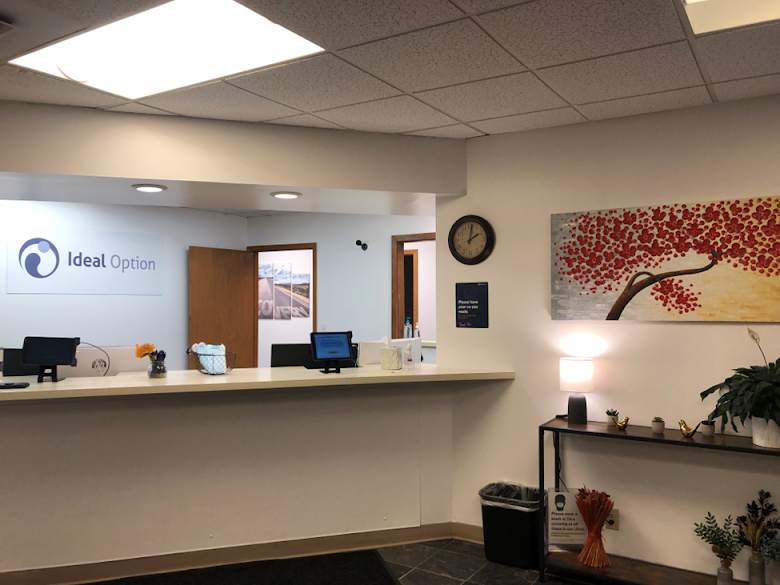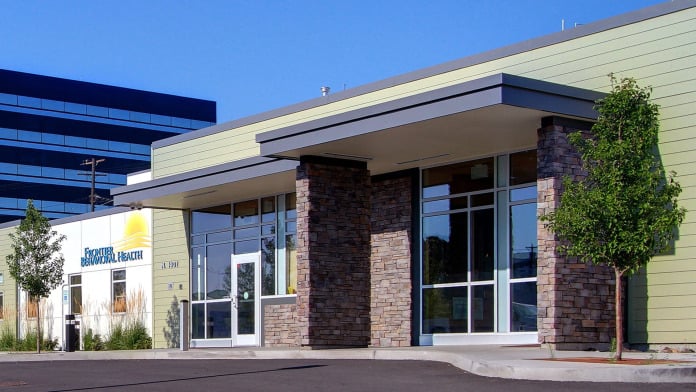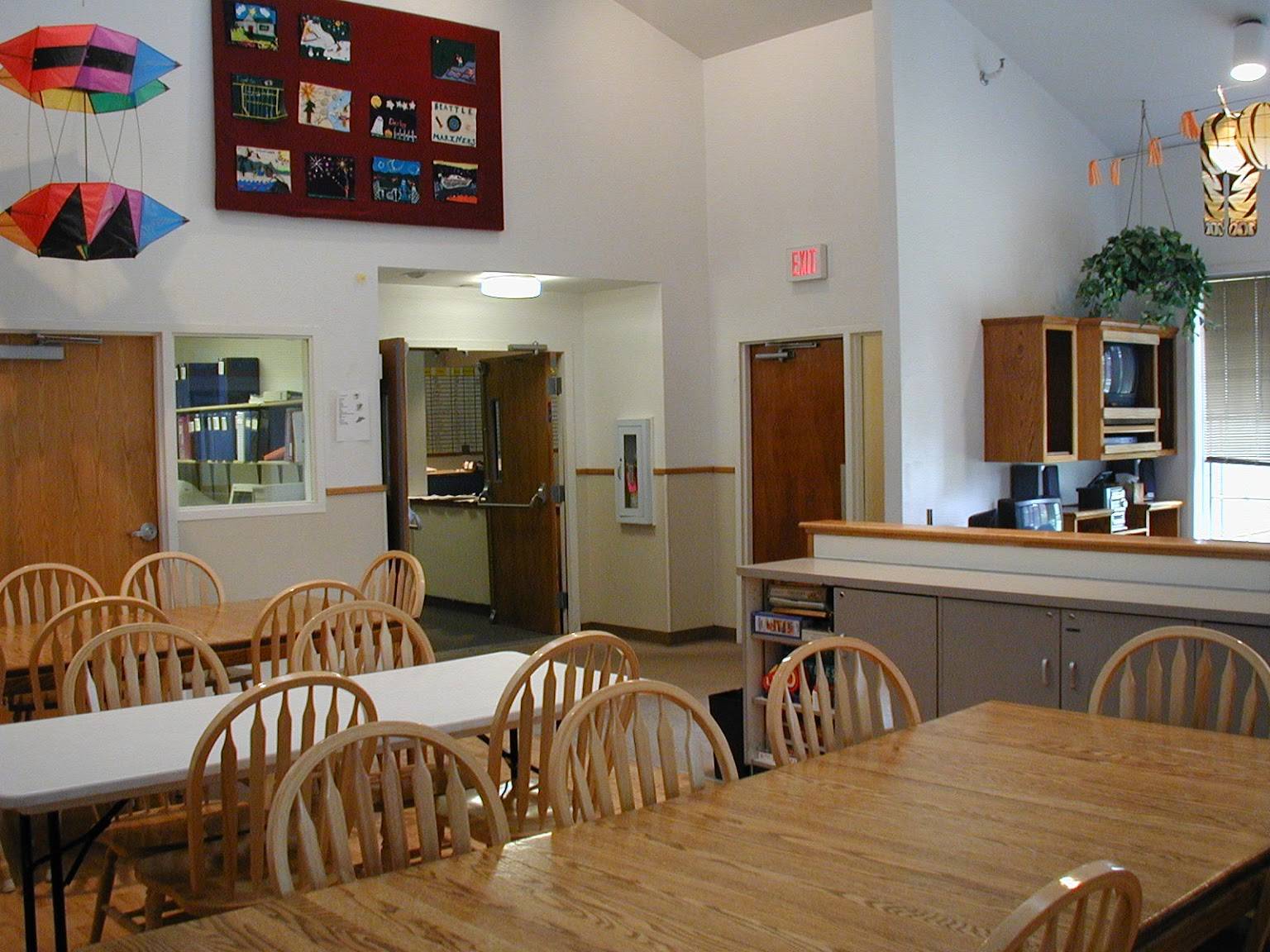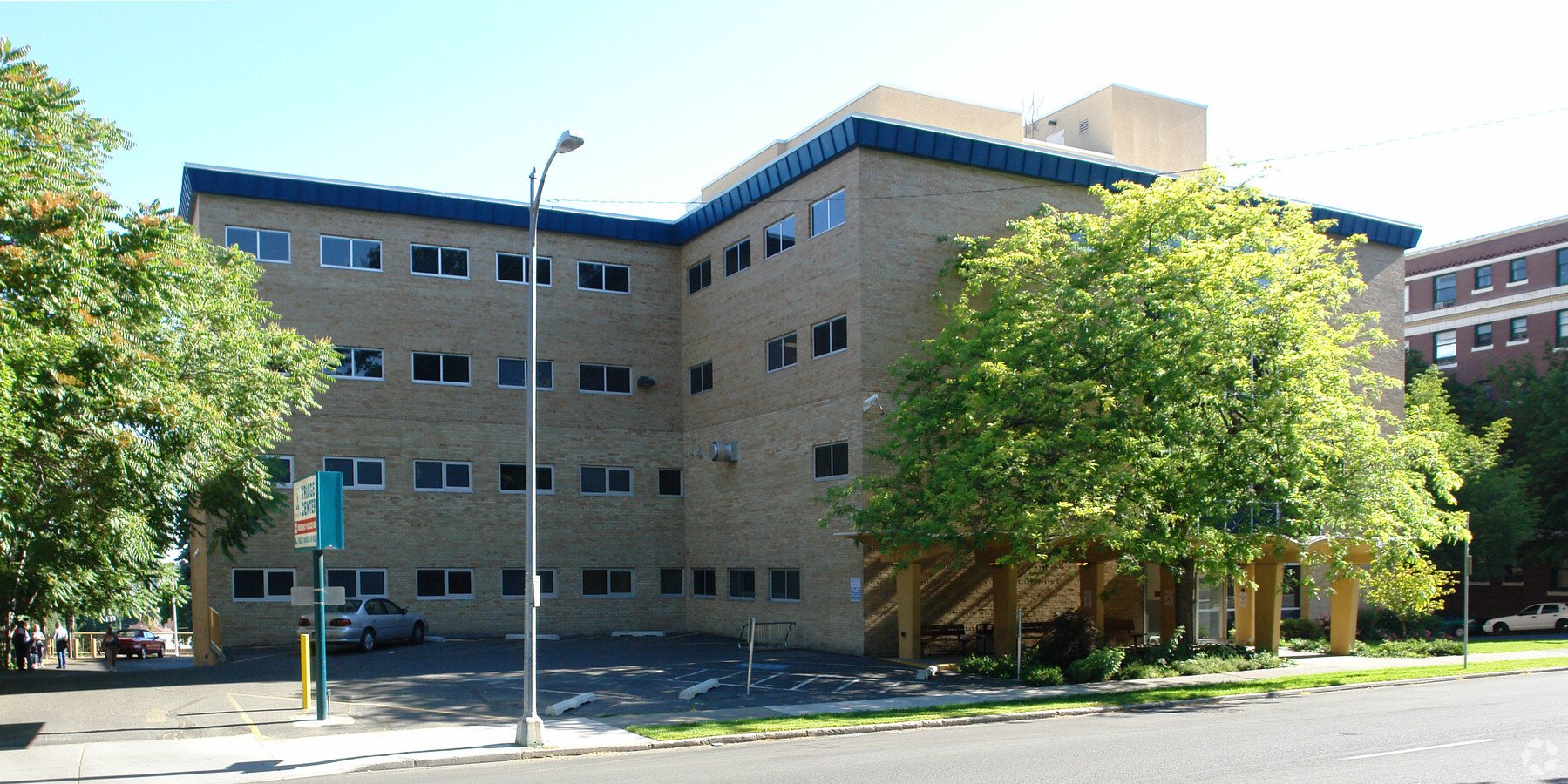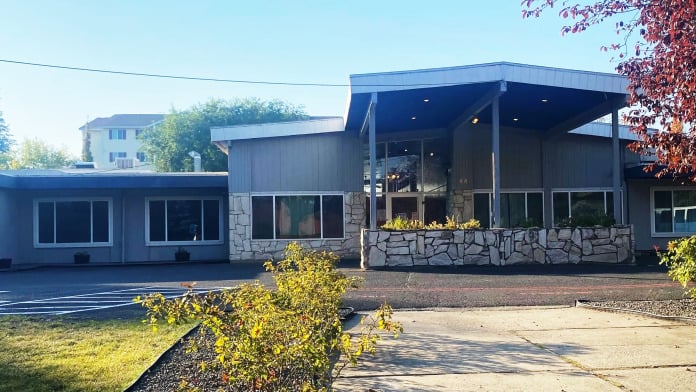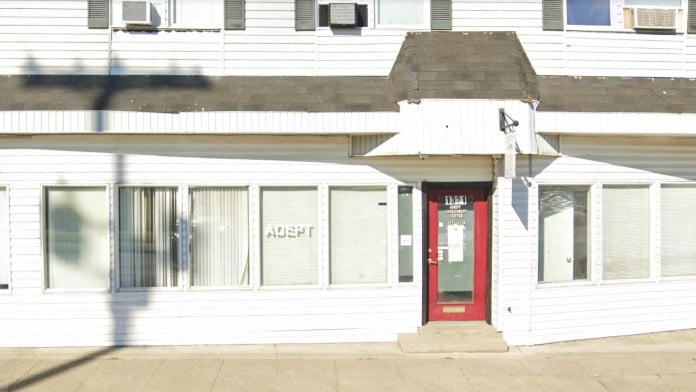About Healing Lodge-Seven Nations
The picturesque campus is tucked behind pine forests and basalt rocks that help kids feel completely transported away during their stay. This space allows kids to feel connected to nature and removed from life’s stresses while still being easily accessible for parents and caregivers.
Healing Lodge has specifically designed their program to address the needs of adolescents rather than treating them like mini adults. Along with evidence based clinical care services, mental health counseling and substance abuse counseling, they also provide supportive services like music therapy, recreational activities and nutrition services.
Their comprehensive inpatient program is run in gender specific groups, and the campus is split into a girls’ wing and a boys’ wing. When teenagers arrive at the center they’re assigned a primary treatment group. This is the group of kids that they’ll be with during five weekly group therapy sessions and any other structured group activities.
The thing that stood out to me about the Healing Lodge is the artful way they’ve combined modern treatment methods and amenities with Native American philosophies and culture. The result is a holistic and effective treatment experience that goes a step further than simply treating the symptoms of a problem.
Some of their outdoor amenities include gender specific sweat lodges and a “central circle” around which the buildings are situated. They also give kids plenty of opportunities to have fun together and enjoy social connections. They have a ninja inspired obstacle course, courts for various team sports, secure and winding hiking trails and paved paths for cycling, walking and skateboarding. They’ve also made sure their facilities are accessible for teenagers living with mobility disabilities.
Facility Overview
Latest Reviews
Rehab Score
Gallery
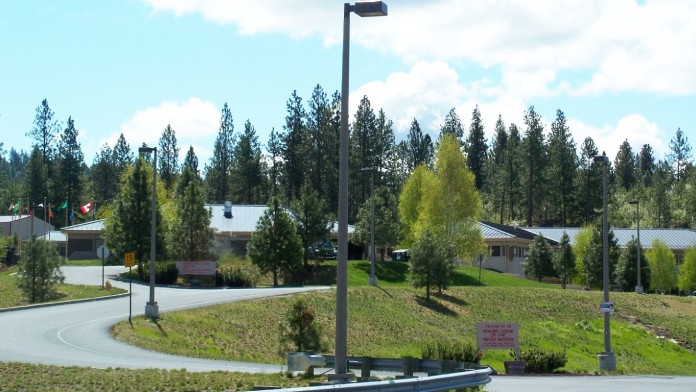
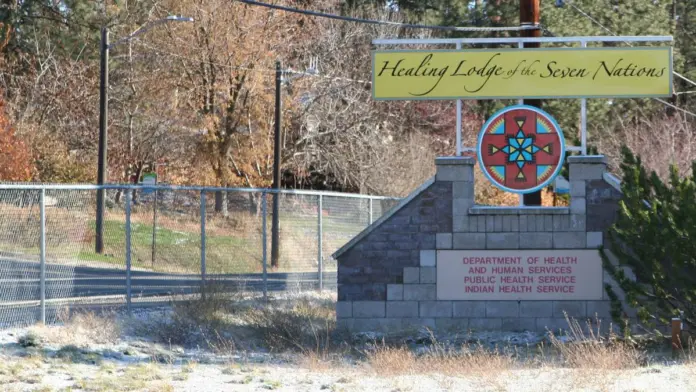


Accepted Insurance
Other Forms of Payment
Private insurance refers to any kind of healthcare coverage that isn't from the state or federal government. This includes individual and family plans offered by an employer or purchased from the Insurance Marketplace. Every plan will have different requirements and out of pocket costs so be sure to get the full details before you start treatment.
Self-pay involves paying for treatment out of your own pocket. You can use savings or credit, get a personal loan, or receive help from family and friends to fund your treatment. If you don't have insurance or your insurance plan doesn't cover a specific program, self-pay can help ensure you still get the care you need.
Medicaid is a state based program that helps lower-income individuals and families pay for healthcare. Medicaid covers addiction treatment so those enrolled can use their coverage to pay for rehab. When a program accepts Medicaid the client often pays very little or nothing out of their own pocket.
Medicare is a federal program that provides health insurance for those 65 and older. It also serves people under 65 with chronic and disabling health challenges. To use Medicare for addiction treatment you need to find a program that accepts Medicare and is in network with your plan. Out of pocket costs and preauthorization requirements vary, so always check with your provider.
Addiction Treatments
Levels of Care
The Healing Lodge of the Seven Nations offers three residential treatment programs that meet the American Society of Addiction Medicine’s (ASAM) criteria for Level III.5 intensive inpatient treatment. Inpatient treatment at The Healing Lodge allows for a complete detox period for the resident’s body to be free of those substances, and provides good nutrition to help their bodies and minds heal.
Rehab aftercare programs support clients as they focus on maintaining their sobriety after intensive (often inpatient) treatment. These programs adhere to a model of life-long recovery, addressing addiction disease as a chronic, relapsing condition. Rehab aftercare services vary widely based on the specific and evolving needs of the client, but often include peer coaching, relapse prevention support, and 12 step program induction. Clients, case managers, and care teams typically collaborate on long-term care plans.
12-step programs are addiction recovery models based on Alcoholics Anonymous (AA). A number of substance abuse programs (including some drug and alcohol rehab centers) use the 12 steps as a basis for treatment. Beginning steps involve admitting powerlessness over the addiction and creating a spiritual basis for recovery. Middle steps including making direct amends to those who've been hurt by the addiction, and the final step is to assist others in addiction recovery in the same way. 12-Step offshoots including Narcotics Anonymous (NA), Cocaine Anonymous (CA), Dual Recovery Anonymous (DRA), Sex and Love Addicts Anonymous (SLAA) and Gamblers Anonymous (GA).
24-hour clinical care in Washington includes a team of medical professionals who are on-site 24/7 to provide the care you need. Medical staff can provide medications and other physical treatment to help you safely navigate withdrawal. Counselors offer mental and emotional support. Other specialists who offer additional resources may include nutritionists, family therapists, and case managers.
Treatments
The goal of treatment for alcoholism is abstinence. Those with poor social support, poor motivation, or psychiatric disorders tend to relapse within a few years of treatment. For these people, success is measured by longer periods of abstinence, reduced use of alcohol, better health, and improved social functioning. Recovery and Maintenance are usually based on 12 step programs and AA meetings.
Effective drug rehab in Washington integrates care for the whole person, offering comprehensive solutions to addiction. Treatment methods address mental, physical, and relational aspects of substance abuse.
Many of those suffering from addiction also suffer from mental or emotional illnesses like schizophrenia, bipolar disorder, depression, or anxiety disorders. Rehab and other substance abuse facilities treating those with a dual diagnosis or co-occurring disorder administer psychiatric treatment to address the person's mental health issue in addition to drug and alcohol rehabilitation.
Opioid rehabs specialize in supporting those recovering from opioid addiction. They treat those suffering from addiction to illegal opioids like heroin, as well as prescription drugs like oxycodone. These centers typically combine both physical as well as mental and emotional support to help stop addiction. Physical support often includes medical detox and subsequent medical support (including medication), and mental support includes in-depth therapy to address the underlying causes of addiction.
Substance rehabs focus on helping individuals recover from substance abuse, including alcohol and drug addiction (both illegal and prescription drugs). They often include the opportunity to engage in both individual as well as group therapy.
Programs
Adult rehab programs include therapies tailored to each client's specific needs, goals, and recovery progress. They are tailored to the specific challenges adult clients may face, including family and work pressures and commitments. From inpatient and residential treatment to various levels of outpatient services, there are many options available. Some facilities also help adults work through co-occurring conditions, like anxiety, that can accompany addiction.
Young adulthood can be an exciting, yet difficult, time of transition. Individuals in their late teens to mid-20s face unique stressors related to school, jobs, families, and social circles, which can lead to a rise in substance use. Rehab centers with dedicated young adult programs will include activities and amenities that cater to this age group, with an emphasis on specialized counseling, peer socialization, and ongoing aftercare.
Clinical Services
Often, substance use disorder originates with negative thinking patterns. Cognitive behavioral therapy in Washington is designed to help individuals change these patterns of thought, which leads to changes in behavior and freedom from addiction.
At The Healing Lodge, Dialectical Behavior Therapy (DBT) is used to help the residents to deal with day-to-day stresses and work towards a life that feels more meaningful and worthwhile. Skills Coaches help youth to target the issues that cause distress and help teach them coping skills without having to resort to destructive behaviors (like substance use). They work hard to create an enriched experience for the youth by demonstrating how life without drugs and alcohol can be fun and rewarding, and their Skills Coaches lead by example.
Group therapy is any therapeutic work that happens in a group (not one-on-one). There are a number of different group therapy modalities, including support groups, experiential therapy, psycho-education, and more. Group therapy involves treatment as well as processing interaction between group members.
In individual therapy, a patient meets one-on-one with a trained psychologist or counselor. Therapy is a pivotal part of effective substance abuse treatment, as it often covers root causes of addiction, including challenges faced by the patient in their social, family, and work/school life.
Clinicians who apply motivational interviewing techniques engage with their clients as equal partners. This method avoids warnings and confrontation and instead allows clients to analyze their situation and explore their options. This technique is often used when the client feels unsure about their ability or desire to change.
Trauma therapy addresses traumatic incidents from a client's past that are likely affecting their present-day experience. Trauma is often one of the primary triggers and potential causes of addiction, and can stem from child sexual abuse, domestic violence, having a parent with a mental illness, losing one or both parents at a young age, teenage or adult sexual assault, or any number of other factors. The purpose of trauma therapy is to allow a patient to process trauma and move through and past it, with the help of trained and compassionate mental health professionals.
Research clearly demonstrates that recovery is far more successful and sustainable when loved ones like family members participate in rehab and substance abuse treatment. Genetic factors may be at play when it comes to drug and alcohol addiction, as well as mental health issues. Family dynamics often play a critical role in addiction triggers, and if properly educated, family members can be a strong source of support when it comes to rehabilitation.
Every inpatient treatment center has staff members that monitor residents 24-hours a day, 7-days a week. At The Healing Lodge, they call these “Skills Coaches” to reflect the basis of what they do. Their Skills Coaches “coach” residents in simple daily living skills like doing laundry, organizing clothing, keeping a checking account, renting an apartment or house, and completing a job application. Skills Coaches work to prepare and encourage residents to make wise choices, and help them develop a sense of control over their daily lives.
Recreational therapy is a dynamic approach to drug and alcohol addiction treatments that integrates activities like gardening, music therapy, and sports. These activities give you a therapeutic outlet for your emotions and help you to reduce your stress levels. This protects your physical and mental health and helps you develop new skills that foster a sober lifestyle.
Whether it’s hip-hop or country, young people love music. As a part of their effort to reach the youth where they’re at, The Healing Lodge uses an Expressive Arts Program to engage their residents with song writing, music development, and recording alongside traditional treatment. Through this program, residents get the unique opportunity to write and produce their own song – within any genre of music they’d like. Through this process, the youth are able to express deep feelings and emotions that may otherwise not have come out during their treatment process.
Experiential therapy is a form of therapy in which clients are encouraged to surface and work through subconscious issues by engaging in real-time experiences. Experiential therapy departs from traditional talk therapy by involving the body, and having clients engage in activities, movements, and physical and emotional expression. This can involve role-play or using props (which can include other people). Experiential therapy can help people process trauma, memories, and emotion quickly, deeply, and in a lasting fashion, leading to substantial and impactful healing.
Amenities
-
Gym
-
Residential Setting
-
Private Rooms
-
Hiking
-
Gardens
-
Walking Trails
Staff & Accreditations
Staff
Rebecca Crocker
Executive Director
Jim Walde
Finance Director
Rachel Pelkey
Human Resource Director
Danielle Stensgar
Family & Wellness Clinic Director
Crystal Scott
SUD & Behavioral Intervention Director
Michelle Zuckerman, Ed. D.
Program & Support Services Director
Accreditations

The Commission on Accreditation of Rehabilitation Facilities (CARF) is a non-profit organization that specifically accredits rehab organizations. Founded in 1966, CARF's, mission is to help service providers like rehab facilities maintain high standards of care.
CARF Accreditation: Yes

The Joint Commission, formerly known as JCAHO, is a nonprofit organization that accredits rehab organizations and programs. Founded in 1951, the Joint Commision's mission is to improve the quality of patient care and demonstrating the quality of patient care.
Joint Commission Accreditation: Yes
Contact Information
5600 East 8th Avenue
Spokane, WA 99212
